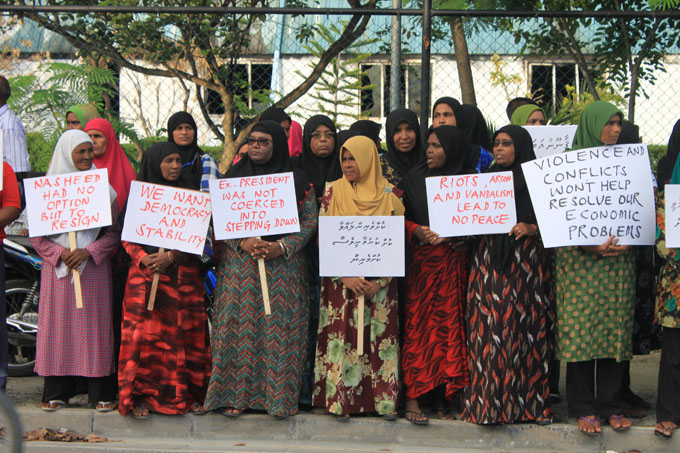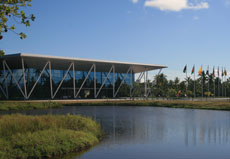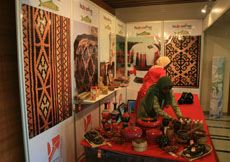The UNDP last week confirmed what most in the Maldives are only too aware of, that the lives of those in the capital Malé bear increasingly little resemblance to those in the outer atolls.
The country’s second Human Development Index report revealed the Malé area to have achieved a ‘highly developed’ score, while the rest of the country lagged behind in the middling bracket.
“Where one is born within the Maldives determines many of the opportunities and choices available to a person,” concluded the report.
While the UNDP will meet with relevant stakeholders in the coming weeks in order to discuss the implementation of policies that might bridge this divide, the government pushed ahead with plans which many feel will only exacerbate the problem.
Recent developments promise only bridge the divide between the the capital’s two largest islands, however, with the construction of the Malé-Hulhule bridge a prominent part of the government’s flagship plan to expand the reclaimed island into a ‘youth city’ of 50,000 people.
Meanwhile, responses to proposals for special economic zones in the country have ranged from skepticism to alarm as the country seeks to make itself attractive to foreign investors once again.
“What I see is that three quarters of the population would probably move to the capital and the rest of the country will be taken over by the corporations,” predicted Salma Fikry, a long-time campaigner for decentralisation.
“Everything is moving towards that direction and the Maldives will lose a lot of their culture – a lot of their lifestyle – these things that make us Maldivian,” she said.
“Unsurprising”
Both Fikry and the online social movement the Rajjethere Meehun Party (RMP) have described the UNDP’s findings as “unsurprising”.
Citing the failures of successive governments to foster sustained development in the atolls, Fikry noted that the lack of political will for such projects had deep historical roots.
“The whole point of decentralisation is scary for the Maldivian government because they like to keep people dependent, they like to think of themselves as doing people favours,” she said.
“It’s very deep-rooted – the government in Malé has feared that the southerners and the northerners might revolt against the government because this has happened in the past.”
The most notable instance of separatism in the country came in the late fifties as the country’s three southernmost atolls seceded from the nation to form the United Suvadive Republic, with a lack of central government assistance being cited as a major reason for the breakaway.
While the short-lived republic was forcefully brought back under the authority of Malé in 1963, the issues appear to remain, with both Fuvahmulah and Addu City councils complaining of a lack of government support in local development.
Fuvahmulah Island Council recently blamed the Ministry of Health for dangerously under-resourced health facilities – an accusation repeated in Kulhudhuffushi this week, and Addu City Council has recently resolved to develop its own guest house tourism industry.
The concentration of the country’s dominant tourism industry has remained in the central atolls despite the government’s initial tourism master plans envisioning an even spread after the initial clustering around the capital in 70s and 80s.
Last week’s UNDP report cited the presence, or the absence, of tourism as a major contributor to to human development levels in the country’s disparate regions.
Despite the development of numerous regional airports, just under 40 percent of the country’s tourism capacity is located in Malé’s Kaafu atoll, with a recent survey showing that 85 percent of the country’s 1 million plus annual visitors reach their destination in less than hour’s journey from the capital.
Addu atoll – the country’s second most populous urban area – currently hosts just 3.6 percent of the country’s bed capacity, while at the opposite end of the country, residents of the only atoll in the country without a resort – Haa Dhaal – recently launched an online campaign calling for equitable development.
Special Economic Zones
The Special Economic Zones bill – recently introduced to the People’s Majlis – has been touted as a way to incentivise foreign investments, reduce the country’s reliance on tourism, and bring rapid development to the Maldives.
Proposals for nine economic zones throughout the atolls, which will include generous tax breaks and relaxed government oversight, have been greeted by many with caution.
Speaking after the launch of the UNDP report last week, Governor of the Maldives Monetary Authority (MMA) Dr Azeema Adam said that, with these incentives, the only benefits that the zones could bring would be local jobs.
“In the special economic zones, developers have the right to bring any amount of expatriate workers as well, so we might be able to generate jobs, but if those jobs go to expatriates we are not going to reap the benefit of such development activities,” said Dr Azeema.
Added to the absence of local expertise in relevant industries, the MMA governor said that serious questions should be asked about the benefit to local people – a point seconded by the RMP.
“On first read, it sounds like a monster in the making,” said the group. “The picture we get is is a scary one. Huge corporate agendas that could overtake all local ownership as well as national ownership of the Maldivian archipelago.”
Minivan News was unable to obtain comment from the Ministry of Economic Development or the Local Government Association at the time of publication.
Both the RMP and Fikry noted that, once an area is allocated as a special zone under the bill, all areas under the jurisdiction of local councils can be taken over.
“Is that really what we want in the long term – do we really want to be under a special zone superintendent by giving away our right to participation in our own development and governance?” asked Fikry.
Both suggested a better option for local development might be to allow for fiscal decentralisation as envisioned in the 2010 Decentralisation Act – whose provisions have yet to be fully enacted.
Failure to fully devolve the powers outlined in the landmark legislation has prompted Addu City mayor Mohamed Soabe to describe the legislation as “just for show”, while Malé City Deputy Mayor Shifa Mohamed has accused the current government of attempting to destroy decentralisation.
This week’s UNDP reports noted – when conducted on an optimal scale – decentralisation can have “positive effects” on human development.
However, with local councils rendered impotent by a dependence on central government finance and the relentless expansion of the capital, neither Fikry nor the RMP are anticipating any surprising developments soon.
 (0)Dislikes
(0)Dislikes (0)
(0)

